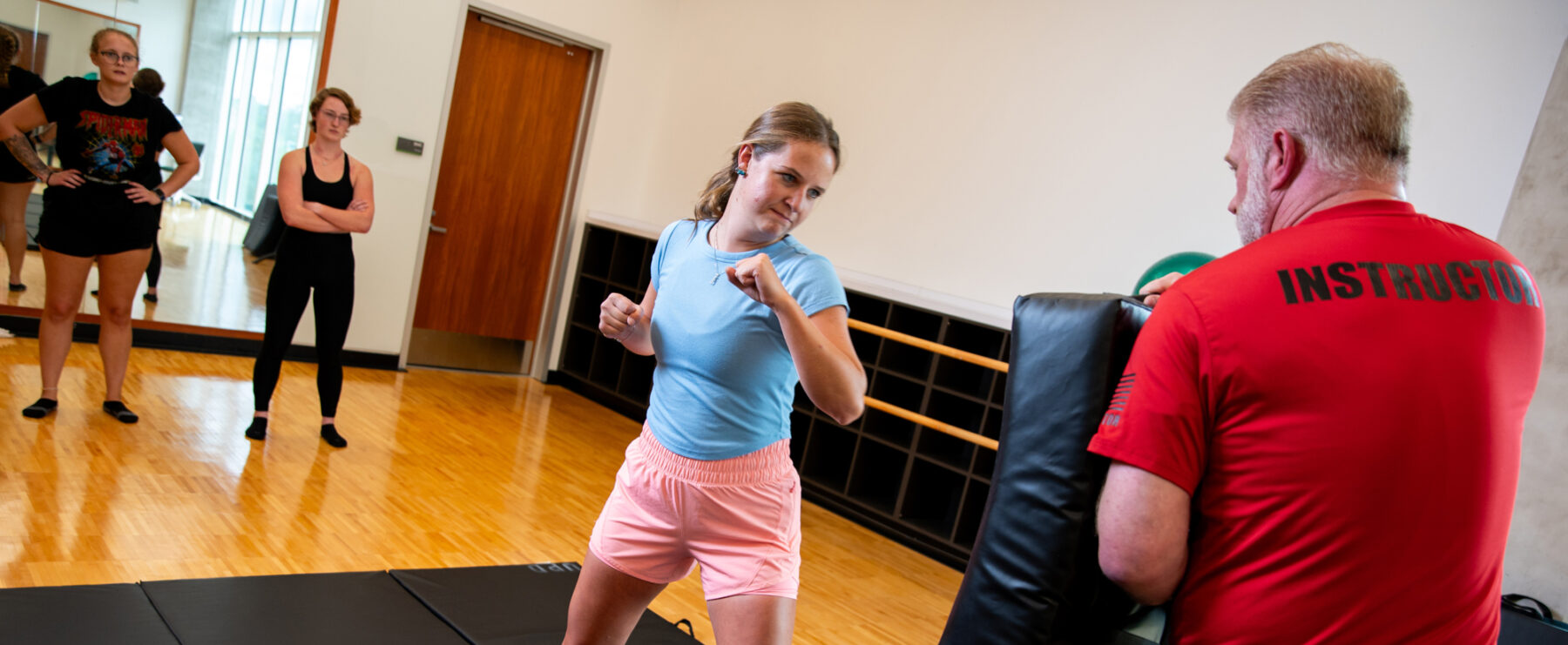
UPD Self-Defense and Educational Programs Contribute to Culture of Safety at A&M-Commerce
The programs empower students with the tools and mindset to take ownership of their safety and wellbeing.
The University Police Department (UPD) at Texas A&M University-Commerce is transcending the traditional role of law enforcement on campus thanks in part to self-defense and educational programs that empower students through practical skills training and personal safety and awareness education.
Led by Officer Ray Dittrich, UPD's Sergeant of Community Engagement, these programs equip students with tools to protect themselves and a mindset to make informed safety decisions.
Protect, serve and educate
Dittrich says the awareness and defense classes are part of UPD Chief Bryan Vaughn's vision for building cohesive relationships throughout the Lion community.
“A lot of folks who come to our campus have not always had the best experience with officers,” Dittrich said. “We're building that relationship where trust is paramount, so they understand we're here for them. ‘Protect, serve and educate.' That's how we police here.”
Self-defense classes to empower students
It's important, Dittrich says, for students to feel empowered about their own safety. Though they may never need the tactics learned in a self-defense class, practicing them gives students a sense that they can get themselves out of danger if something happens.
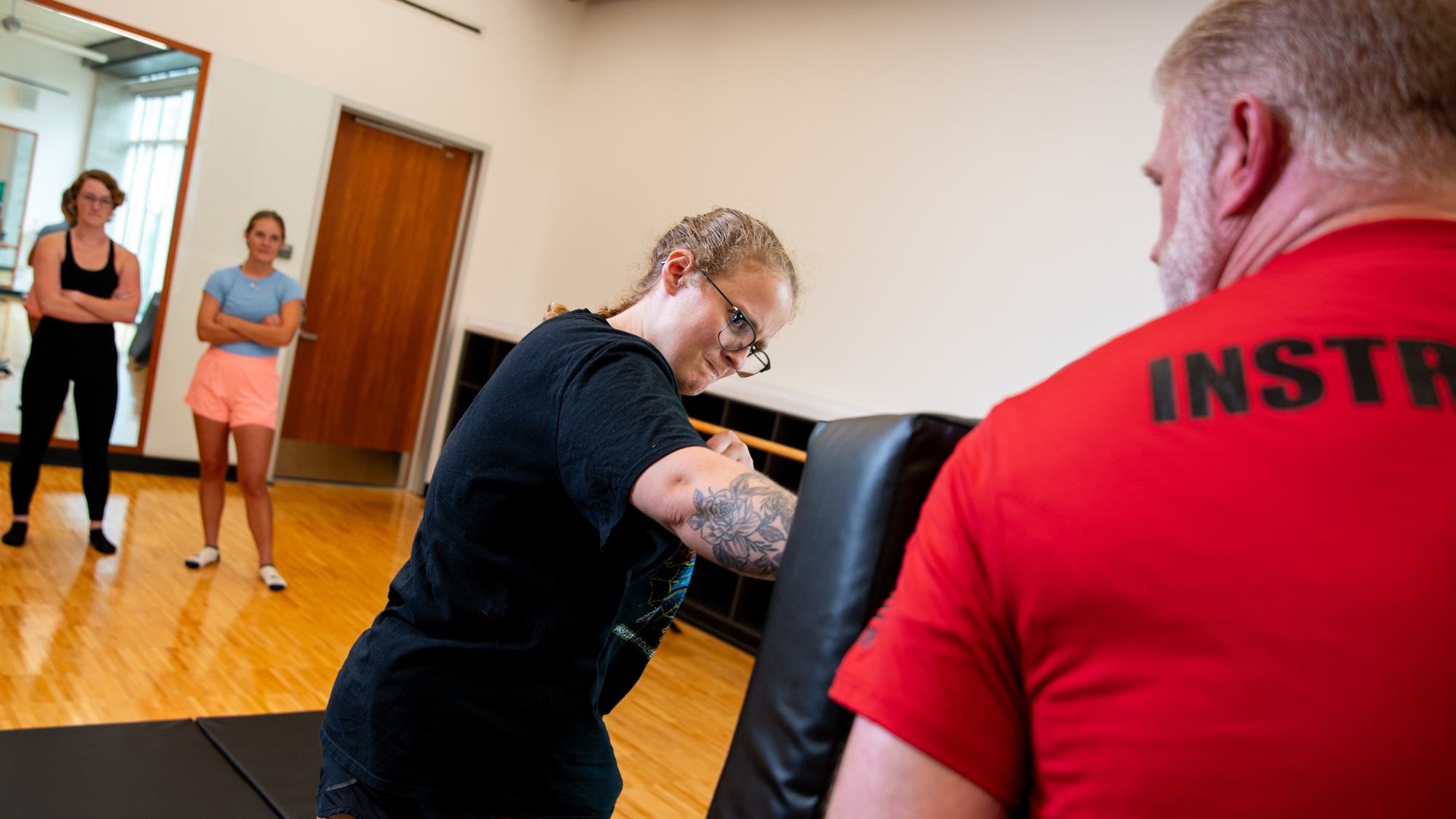
“We have an incredibly safe campus,” Dittrich said. “Our crimes against persons here are incredibly low. That's not why we teach these classes. It's about empowering that person to take control of their safety.”
“The truth,” he added, “is that, ultimately, you're responsible for your safety. If you need help, we're coming, but you still need to know how to keep yourself safe until we get there.”
The department primarily offers two self-defense classes.
Rape Aggression Defense
UPD offers a Rape Aggression Defense (RAD) class, which is part of a national program.
RAD focuses on awareness, prevention, risk reduction and avoidance before progressing to the basics of hands-on defense tactics such as punches, kicks and close-quarter elbow and knee strikes.
“RAD is more than just a set of self-defense techniques,” Dittrich said. “We begin by establishing a state of mind with the belief that you are worth defending.”
RAD courses are offered twice yearly, with up to 15 participants. The nine-hour program is offered over four or five weekly sessions. RAD classes are open to students, faculty and staff.
Women's Awareness and Self-Protection
Dittrich says the most popular class is Women's Awareness and Self-Protection (WASP). The class focuses on best practices for personal safety, both on campus and in public. It teaches women to be aware of their surroundings and incorporates defense tactics designed to give an attacker a moment of pause.
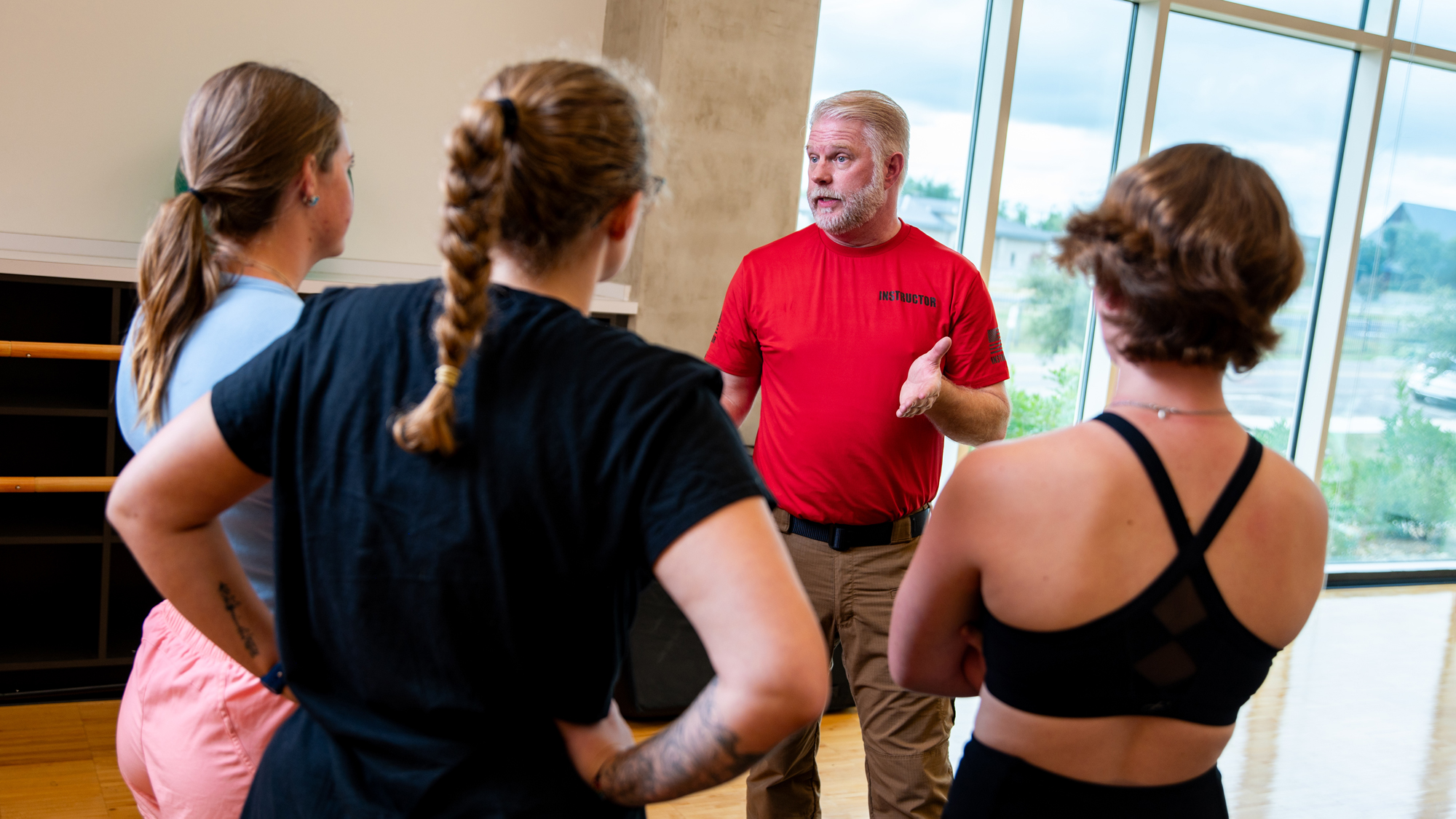
“I developed the program 20 years ago and have taken it with me as I've gone to different agencies,” he said. “Like a wasp sting, it warns the attacker, ‘Back off!’”
WASP classes teach fundamentals of defense. The primary focus is on practical defense tactics using hands, keys and other weapons of opportunity. The class also teaches elbow and knee strikes within close quarters. The aim is to get an attacker on the ground so the victim can escape.
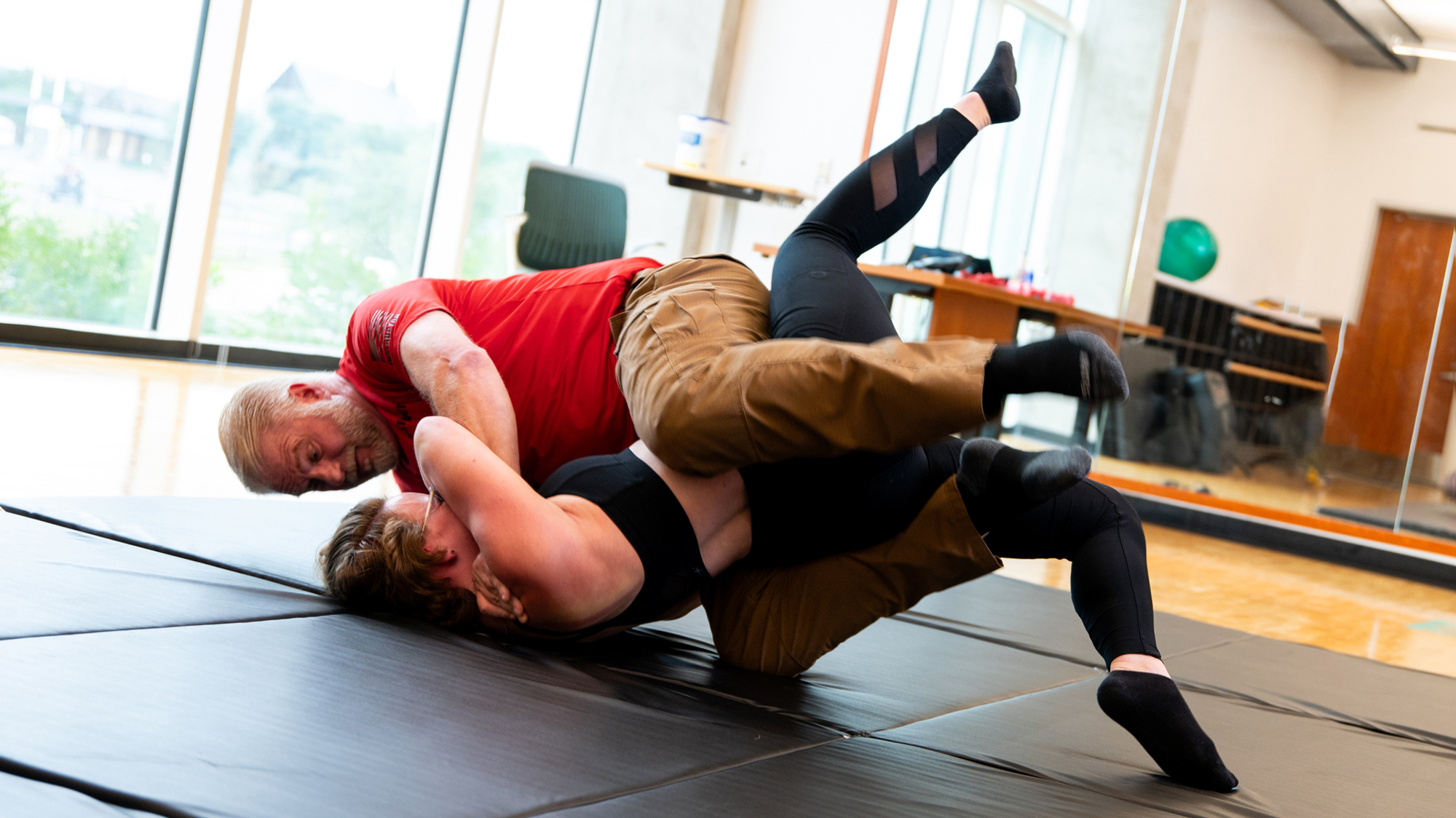
The two-and-a-half-hour class, which can host up to 20 people, is usually conducted three times per semester.
More than just self-defense
Dittrich said the department offers other classes that meet the emerging needs of students at A&M-Commerce.
He teaches a class about healthy dating at the college level because he has seen countless women arrive on campus without understanding what healthy relationships should look like.
“Sometimes, they just need someone to help them understand, ‘You deserve to be treated with respect. You don't have to accept anything less because that's what a healthy relationship looks like,'” Dittrich said.
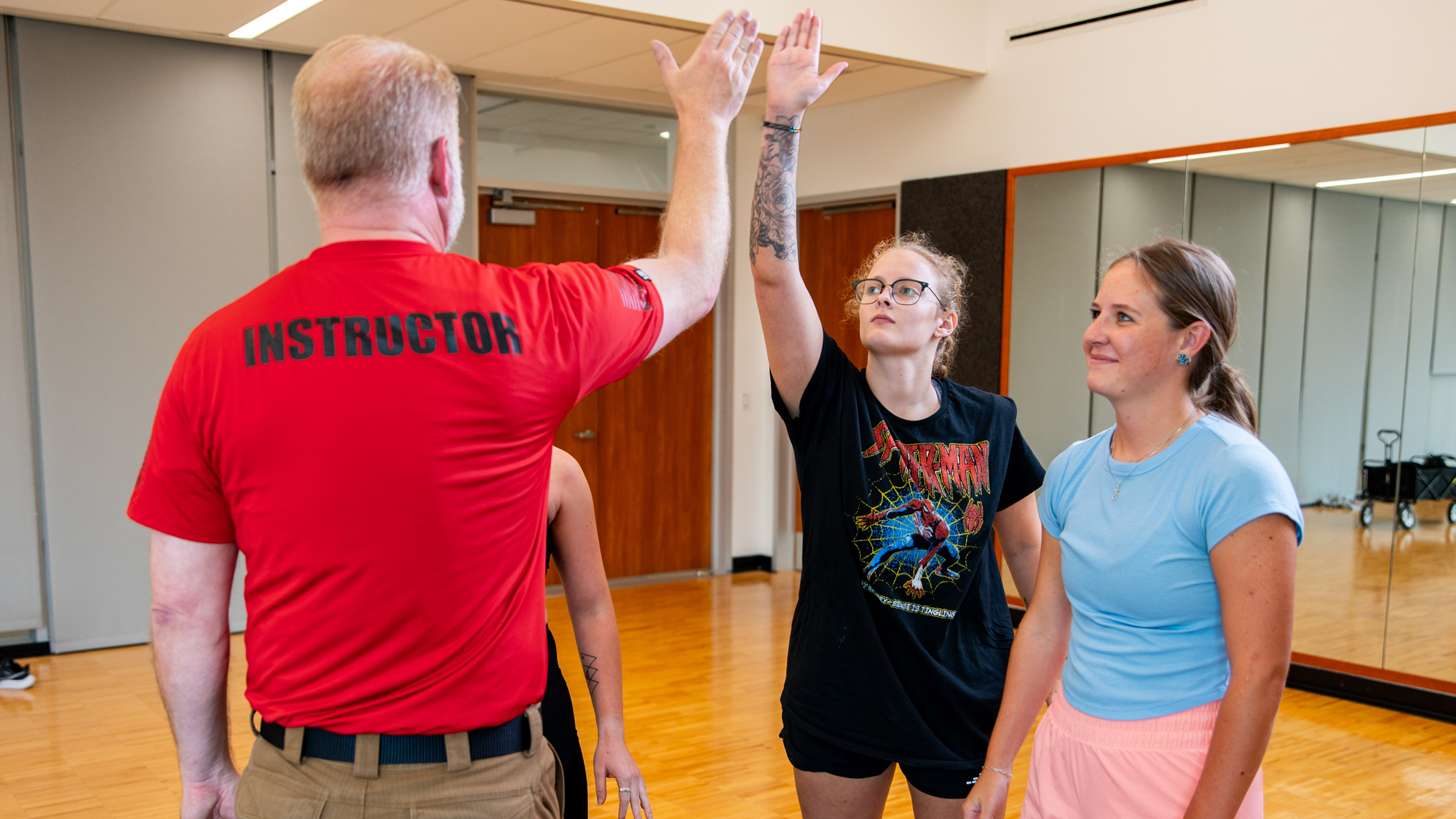
Likewise, he also teaches a class specifically for young men who are freshmen or transfer students. Dittrich said many of these students aren't well-versed in transitioning into responsible, self-aware adults.
He said the class teaches them: “‘Here are things that are not acceptable and things that are acceptable. Here are things that a man does and things that a man does not do.' We have young men who come onto this campus who never got that talk.”
Another class is aimed at international students since various cultures view policing differently. He said the class is the department's chance to say, “Hey, welcome. We're glad you're here and want you to get a feel for who we are and what we do.”
In addition, the department presents at student orientation events.
“That's probably one of my favorites,” Dittrich said. “It allows me to meet incoming freshmen students and their parents.”
As a father, he understands that every parent wants to know their child will be safe on campus.
“We're delivering messages to two separate groups,” he said. “To the students, it's ‘We're here for you.' For the parents, it's ‘Absolutely, your child is going to be safe here.'”
Collaborating with campus partners
Dittrich believes the classes offered by UPD help build a sense of community among various campus groups. He says the department is a natural partner for these groups because personal safety is a core concern for everyone.
UPD regularly collaborates with the Student Government Association, Residential Living and Learning (RLL), Lion Athletics, sororities and fraternities, and other campus groups to provide classes that serve as team-building and community-building opportunities.
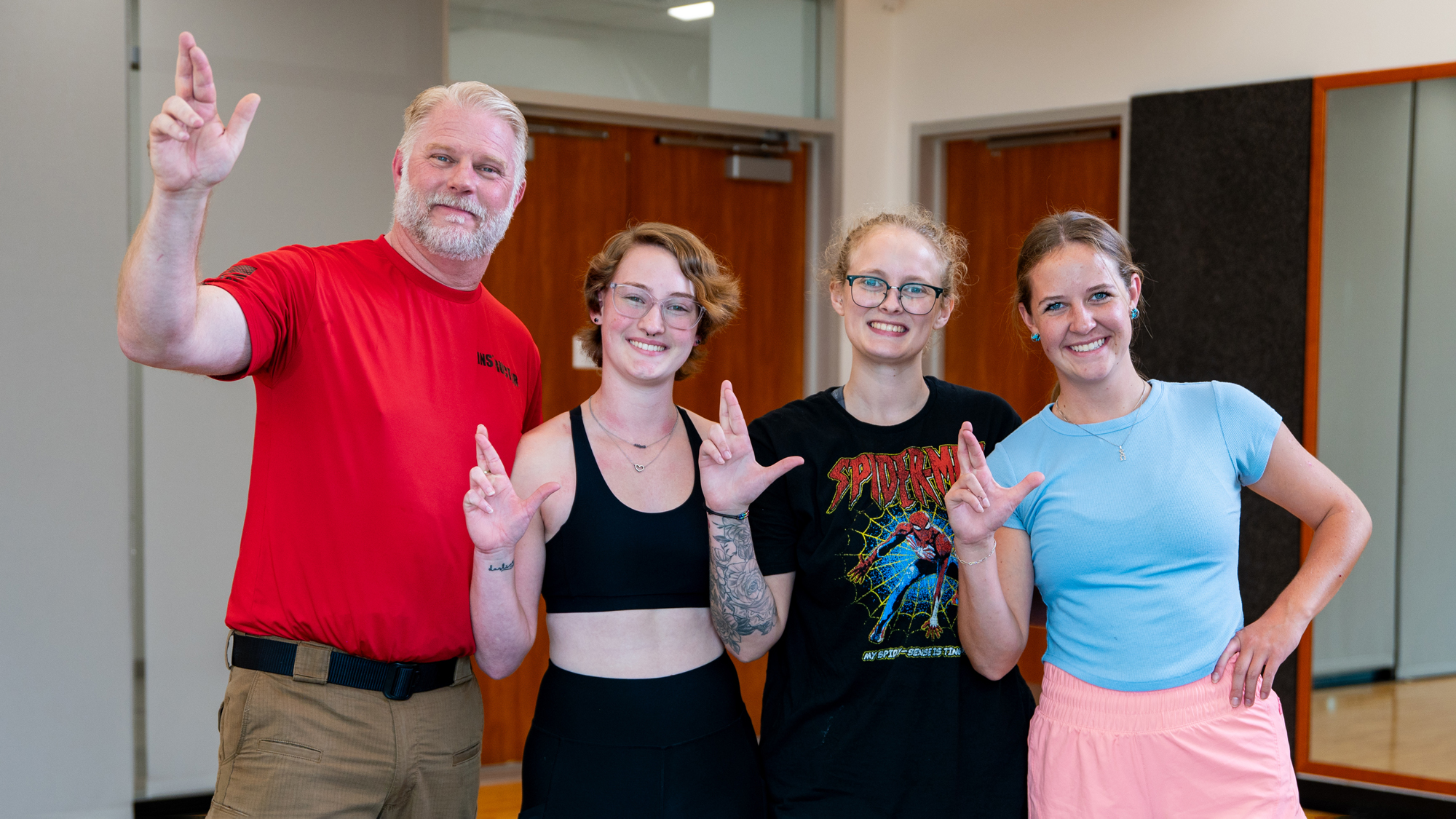
“When we do a class for the volleyball team, it's a team-building experience because they already know each other,” Dittrich said. “But when we do a class for RLL, that's 10, 15 or 20 students who just happen to live on the same floor, so that's going to build community.”
He continued: “Every time we have an opportunity to present that, we as a department are building community. We're building relationships, whether that's one program at a time or one conversation at a time. That's really powerful. We take great pride in being part of the Lion community.”
Another advantage of partnering with campus groups is the ability to manage the logistics of facilitating these classes since UPD is limited in the personnel and equipment needed to teach the classes day in and day out. Instead, Dittrich says, the department tries to limit classes, particularly self-defense classes, to one per week.
A commitment to safety
The self-defense classes and educational programs offered by UPD are more than just practical training opportunities; they reflect the department's commitment to fostering a safe and supportive campus environment. With its mission to “Protect, Serve and Educate,” UPD engages with the campus community through these programs to build trust and strong relationships. As students become empowered in their ability to protect themselves, they develop a deeper connection to their peers and the university, creating a safer, more connected Lion community.
A&M-Commerce students and campus groups interested in scheduling a self-defense or educational class may contact [email protected]. Learn more about the UPD at Texas A&M-Commerce.
More Press Release
View All Press Release
Fuseini Selected as SLC Men’s Track Athlete of the Week for Third Time in 2025
East Texas A&M University track and field sprinter Ibrahim Fuseini has been named the Southland Conference Men's Track Athlete of the Week.
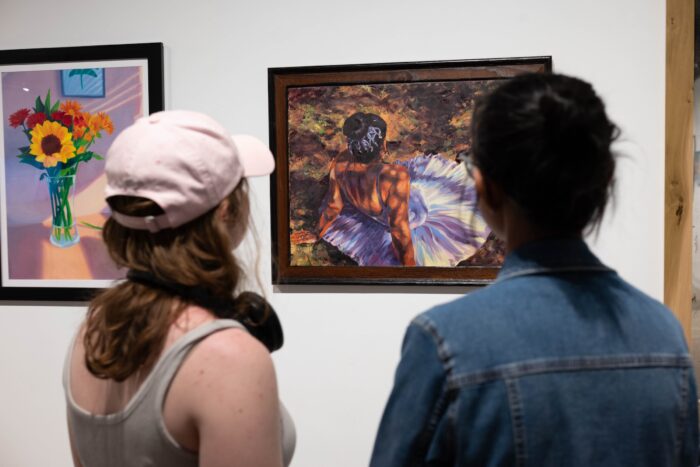
East Texas A&M Art Students Showcase Work in Juried Student Art Exhibition
The East Texas A&M University Department of Art is pleased to announce the winners of the 2025 Annual Juried Student Art Exhibition.

Why Advancing from RN to BSN Matters More Than Ever – And How It’s Faster and Cheaper Than You Think
At East Texas A&M University, an RN can earn their BSN in a matter of months while avoiding many of the drawbacks of the standard college experience.


